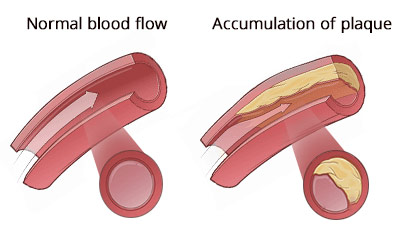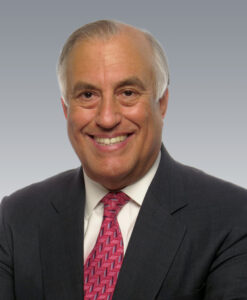Home / Stroke Test – Screening for Stroke Symptoms
In individuals with an increased risk of stroke, screening including a consultation with a cardiologist, a blood test for increased lipids, ultrasound of the heart and the carotid arteries and a blood pressure evaluation can be useful in determining risk. Evaluation of these risk factors can result in a program of prevention.
Stroke Screening in New York
Stroke screening looks one of the primary causes of stroke and vascular disease: accumulation of plaque in your carotid arteries. Because this condition often has no warning signs, early detection by cardiologists are key in prevention.
How often should I get a stroke screening?
- Annually
The entire staff was exceptional. Dr. Reisman was patient, reassuring and walked me through every procedure I underwent and explained what they’d show. One of the best specialists I’ve been to. Highly recommend.
David M.
Very straightforward and cautious doctor – came in for a consult, and he immediately ordered a couple tests that I thought I’d need to jump through hoops for. Within less than an hour (for the testing, etc), he was able to give me a preliminary answer and resolve my anxiety. Highly recommend!
Nicole K.
Absolutely one of the best Doctors I’ve ever seen. First rate. Well trained, experienced and actually cares about his patients. He is absolutely one of the best in the nation. Works very hard and extends hours to accommodate your time constraint needs. The staff is professional, kind and treat you like an adult.
David K.
What Check our Stroke Doctor?
- Stroke
- Arrhythmia
- Heart murmur
- Atrial fibrillation
- High blood pressure
- High cholesterol level
- Sleep apnea
- Peripheral arterial disease (PAD)
- Aneurysm
- Sudden death syndrome
- Carotid artery stenosis
The results of these screenings will help us develop a treatment plan that is right for you and your heart health. Don’t wait – get a heart screening today. It could save your life.
According to the National Institutes of Health the major risk factors for stroke (reasons why you should be screened for a stroke) include:
- High blood pressure. High blood pressure is the main risk factor for stroke.
- Diabetes. Diabetes is a disease in which the blood sugar level is high because the body doesn’t make enough insulin or doesn’t use its insulin properly.
- Smoking. Smoking can damage blood vessels and raise blood pressure. Smoking also may reduce the amount of oxygen that reaches your body’s tissues. Exposure to secondhand smoke also can damage the blood vessels.
- Heart disease. Coronary heart disease (also called coronary artery disease), heart failure, and atrial fibrillation can cause blood clots that can lead to a stroke.
- Brain aneurysms or arteriovenous malformations (AVMs). Aneurysms are balloon-like bulges in an artery that can stretch and burst. AVMs are tangles of faulty arteries and veins that can rupture (break open) within the brain. AVMs may be present at birth, but often aren’t diagnosed until they rupture.
- Age and gender. Your risk of stroke increases as you get older. At younger ages, men are more likely than women to have strokes. However, women are more likely to die from strokes. Women who take birth control pills also are at slightly higher risk of stroke.
- Race and ethnicity. Strokes occur more often in African American, Alaska Native, and American Indian adults than in Caucasian, Hispanic, or Asian American adults.
- Personal or family history of stroke or TIA (also known as “mini-strokes”). If you’ve had a stroke, you’re at higher risk for another one. Your risk of having a repeat stroke is the highest right after a stroke. A TIA also increases your risk of having a stroke, as does having a family history of stroke.

Other risk factors for stroke, many of which of you can control, include:
- Alcohol
- Illegal drug use, including cocaine, amphetamines, and other drugs
- High cholesterol levels
- Lack of physical activity
- Unhealthy diet
- Obesity
- Stress and depression
- Certain medical conditions, such as sickle cell anemia, vasculitis , and bleeding disorders
Depending on the results of your screening, the stroke doctor may recommend additional testing, or treatment.
What are The Benefits of Stroke Screening?
Understanding your own risk of cardiovascular disease allows you to identify weaknesses and take steps to reduce the likelihood of complications. Sometimes, changing your lifestyle is enough, but in other cases, a stroke doctor may recommend medications or special medical interventions to stabilize the condition and prevent further events.
If you have any questions for the best in class NYC stroke specialist or would like to schedule a consultation or appointment please feel free to contact Dr. Steven Reisman of the New York Cardiac Diagnostic Center and indicate which Manhattan office (Upper East Side, Cardiologists Midtown Manhattan, or Wall Street / Financial District) you would like to see the cardiologist for a cardiac consultation.

Dr. Steven Reisman is an internationally recognized cardiologist and heart specialist. He is a member of the American College of Cardiology, American Heart Association, and a founding member of the American Society of Nuclear Cardiology.
Dr. Reisman has presented original research findings for the early detection of "high risk" heart disease and severe coronary artery disease at the annual meetings of both the American College of Cardiology and the American Heart Association. Dr. Reisman was part of a group of doctors with the Food and Drug Administration who evaluated the dipyridamole thallium testing technique before the FDA approved it.
Dr. Steven Reisman's academic appointments include Assistant Professor of Medicine at the University of California and Assistant Professor at SUNY. Hospital appointments include the Director of Nuclear Cardiology at the Long Island College Hospital.


